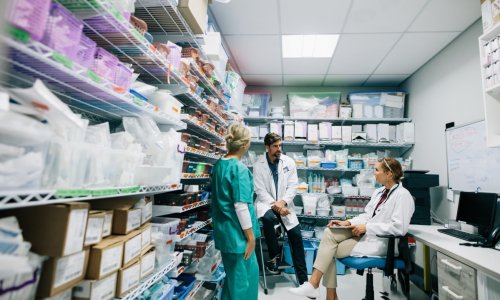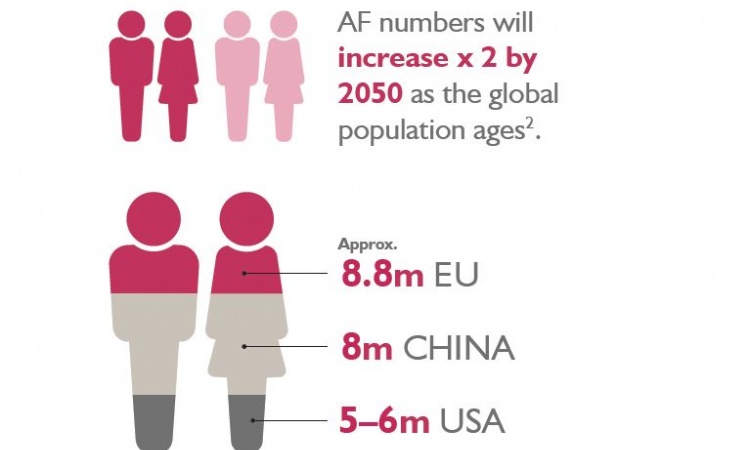European Health Forum Gastein
Bad Hofgastein, Austria, 30 September - 3 October
600 international politicians, economists, scientists, NGOs and healthcare organisations will discuss the effects of the global economic crisis on European healthcare systems during this autumn's European Health Forum Gastein (EHFG).
Lacking treasury funds affects the ability and willingness to provide public subsidies for healthcare; decreasing economic output and increasing unemployment in turn lead to a decline in contributions to medical insurers. The problem is exacerbated because an economic crisis encourages unhealthy behaviours (diet, smoking, alcohol, less exercise etc). All in all, the effects will be significantly bigger for socially disadvantaged groups and the differences in healthcare between social classes will increase significantly.
Although the crisis is a serious threat for healthcare, according to Armin Fidler, chief advisor for healthcare politics at the World Bank, ‘… the negative effects are not unavoidable. With selective measures in the context of the various national economic stimulus plans we could definitely tackle these problems efficiently.’ Experience gained from earlier crises shows that expenditure on general healthcare in times of economic downturns is clearly down and then takes quite a time to return to previous standards. ‘If you allow the crisis to affect healthcare standards you are asking for a lasting problem,’ he pointed out.
On the whole, Armin Fidler deems it positive that considerable parts of the various national economic stimulus programmes are dedicated to the healthcare sector. In the US, about 7.5% of the economic stimulus programme is spent on healthcare; in Germany it is around 10 out of ?5 billion. However, it is problematic that this expenditure mostly only works in the long term and does not contribute towards solving current problems in healthcare. Although the development of a modern healthcare IT system in the US is without doubt a wise move in the long term, and would also represent a stimulus for the IT sector, it would not immediately contribute towards improvements to current healthcare services. The same goes for the German economic stimulus package: the healthcare sector is essentially earmarked for the modernisation and expansion of hospitals. ‘This supports the employment market and possibly also improves the infrastructure in the long term, but has no benefits for the precarious situation during the economic crisis.’
Armin Fidler therefore demands that the parts of the economic package intended for the healthcare sector primarily ought to be used for securing and improving current healthcare services. The healthcare sector could even finance large parts of such programmes itself. ‘The crisis should be viewed as a chance to implement long overdue reforms. Each country actually still has large efficiency reserves and enough areas where cost cutting would be possible without negative effects on healthcare.’
He fears that possible cuts in development aid for healthcare or bilateral support could also have negative repercussions in the industrial nations, due to the lack of public finances.
The European Health Award 2009
Six scientific projects have been shortlisted for the annual European Health Award 2009, to be presented at the EHFG meeting in recognition of initiatives for the improvement of healthcare. Important criteria for awarding the prize are the participation of several countries, transferability of findings to other countries and the immediate benefit for a considerable percentage of a population or patient groups.
‘Even if most international healthcare programmes are funded by large institutions they were generally conceived on the initiative of particularly dedicated experts,’ explained EHFG President and jury chairman Günther Leiner. ‘The award intends to recognise the efforts of these people and at the same time to increase awareness that international cooperation in healthcare has very tangible, positive effects on individual patients, and there is still enormous potential for further improvements.’
The six shortlisted projects
Diabetes: Best Information through Regional Outcomes
This aims to develop a European healthcare information system with standardised parameters and indicators, data protection guidelines and, if sensible, harmonisation of organisational processes. The essential difference to earlier initiatives is the direct linking of regional levels (where care is normally organised) with a European level. This allows for improved practice orientation and faster implementation of opportunities to improve than information exchange and knowledge on a national level.
Participating countries (or regions within these countries): Austria, Cyprus, Italy, Malta, Norway, Romania, Scotland.
Primary Care: European Patient Assessment (EPA)
Although in cross-border knowledge and experience exchange is common in specialist medical care, particularly in hospitals, this is not the case in primary care. The very different levels of quality and efficiency in Europe (even in countries with similar economic power and otherwise comparably good healthcare) is largely due to a lack of international benchmarking in this area, and that successful models from other countries (best practice) are not implemented sufficiently. The project aims to close this gap.
One feature EPA feature worth noting: Funding comes largely from private sources (Bertelsmann Foundation) or was organised by the members of the international project team on a national level.
Participating countries (or regions within these countries): Belgium, Germany, England, France, Israel, The Netherlands, Austria, Switzerland, Slovenia, Wales
The WHO Health in Prisons Project (HIPP)
Often, the optimisation of healthcare for prisoners is not given necessary importance, despite considerable health problems occurring among them. This not only has negative effects on the prisoners but also due to the significant amount of transmittable diseases (particularly HIV and TB) presenting a potential threat for healthcare in general. The long term project of the WHO has contributed considerably towards raising awareness on national levels and it also led to the development of WHO guidelines, including those for HIV and TB prevention and mental illnesses. An international exchange of experience in this specialist medical care area was also primarily facilitated through the WHO initiative.
Participating countries: 37 States of the WHO Europe Region
Patient Safety Information System (PaSIS)
Medical mistakes are a significant problem today, even hindering medical-scientific progress. Through the evaluation of error statistics, PaSIS aims to identify the sources of errors quickly, using a well functioning reporting system, as well as to develop and implement efficient counter strategies. In practice, this should help to improve hospital internal processes, equipment and working conditions, e.g. organising shifts to avoid phases characterised by a lack of concentration and resulting errors.
Participating countries: Germany, Austria
Pharmaceutical Pricing and Reimbursement Scheme
Medicines represent a considerable proportion of all healthcare costs. The negotiating powers of national medical insurers and health authorities largely depend on the existence of easily comparable international data. Aiming to deal with that, the project includes measures such as the development of a general glossary, the systematic development of country profiles, development of indicators for comparison and the institutionalisation of opportunities for information exchange between countries. In view of budget concerns in almost all healthcare systems this initiative, which primarily aims for cost optimisation, contributes considerably towards fair access to medicines in the participating countries.
Participating countries: EU-27, Albania, Canada, Iceland, Norway, South Africa, Switzerland, Turkey
Rare diseases: Rapsody Project
Rare diseases may appear to be rare, but they affect innumerable people. Due to low case numbers per disease in individual countries, intensive international cooperation is vital. Countries involved in this project hope to set up centres of competence for 16 rare diseases; exchange information about procedures and services for rare disease sufferers across Europe; compare services in different countries; identify the best procedures and to support, or initiate, the development of new services (via websites, databases, care institutions and programmes).
Participating countries: Czech Republic, Denmark, France, Germany, Hungary, Italy, Luxembourg, Spain, Sweden, The Netherlands, Portugal, Great Britain
by Christian Pruszinsky
16.09.2009





